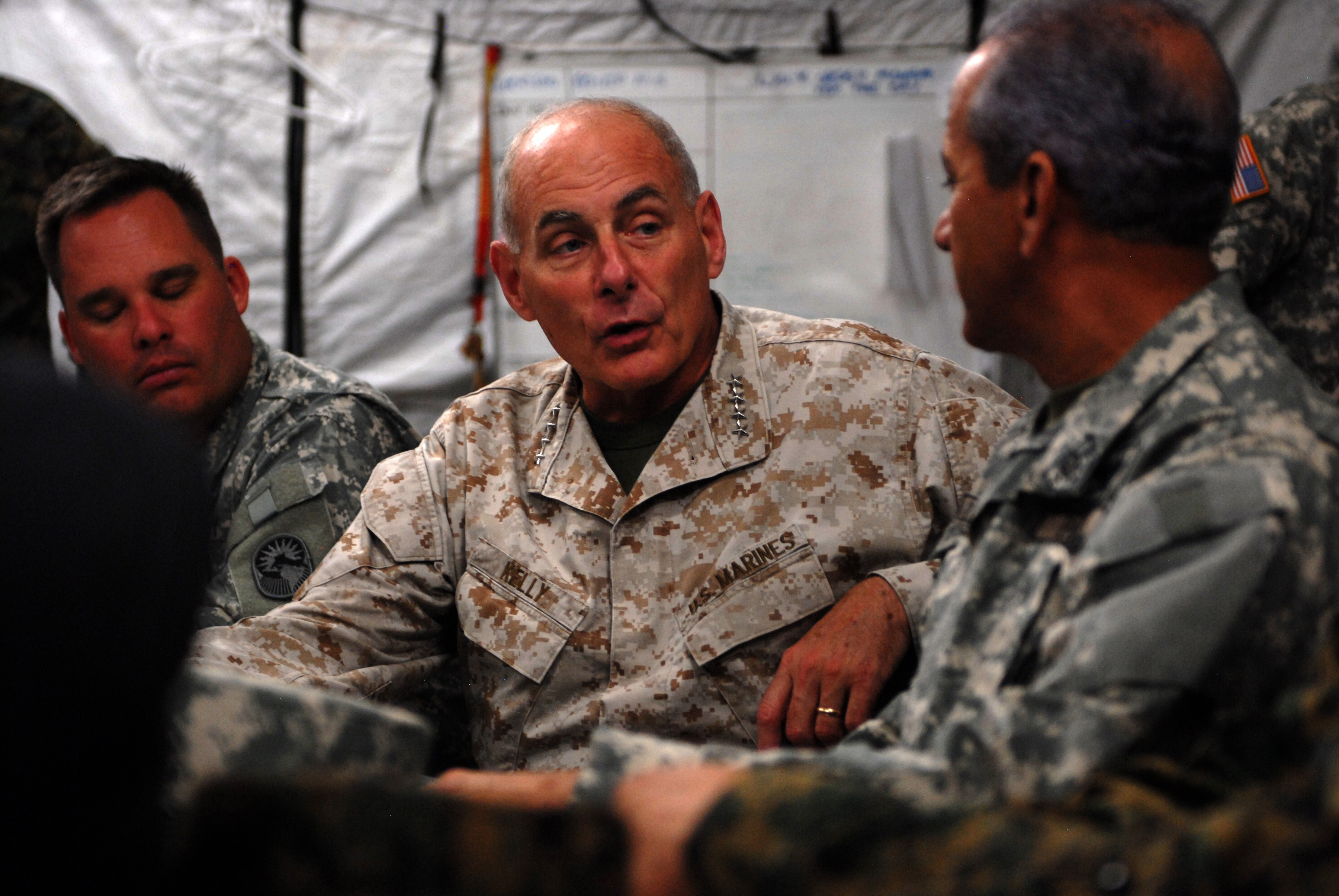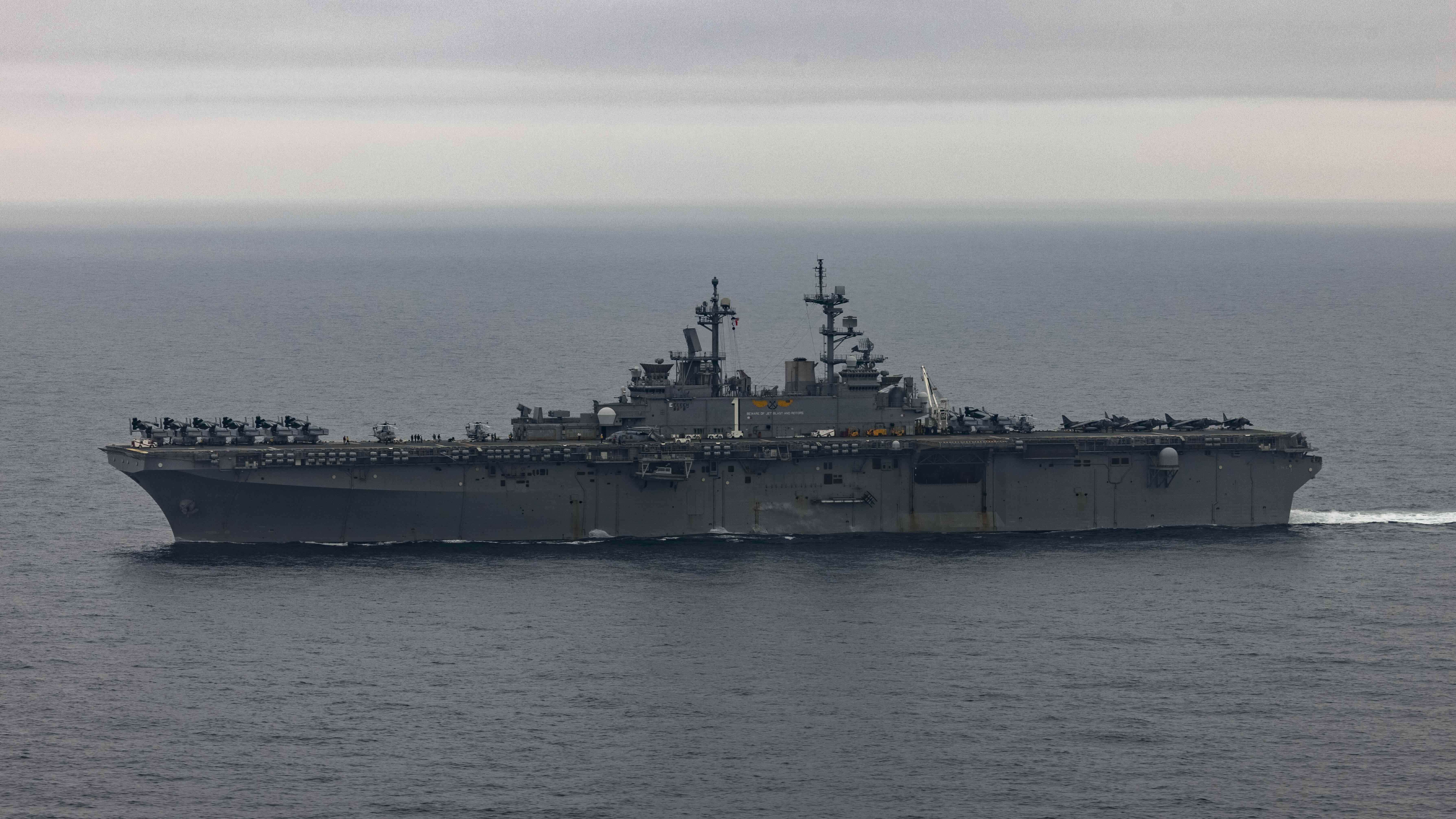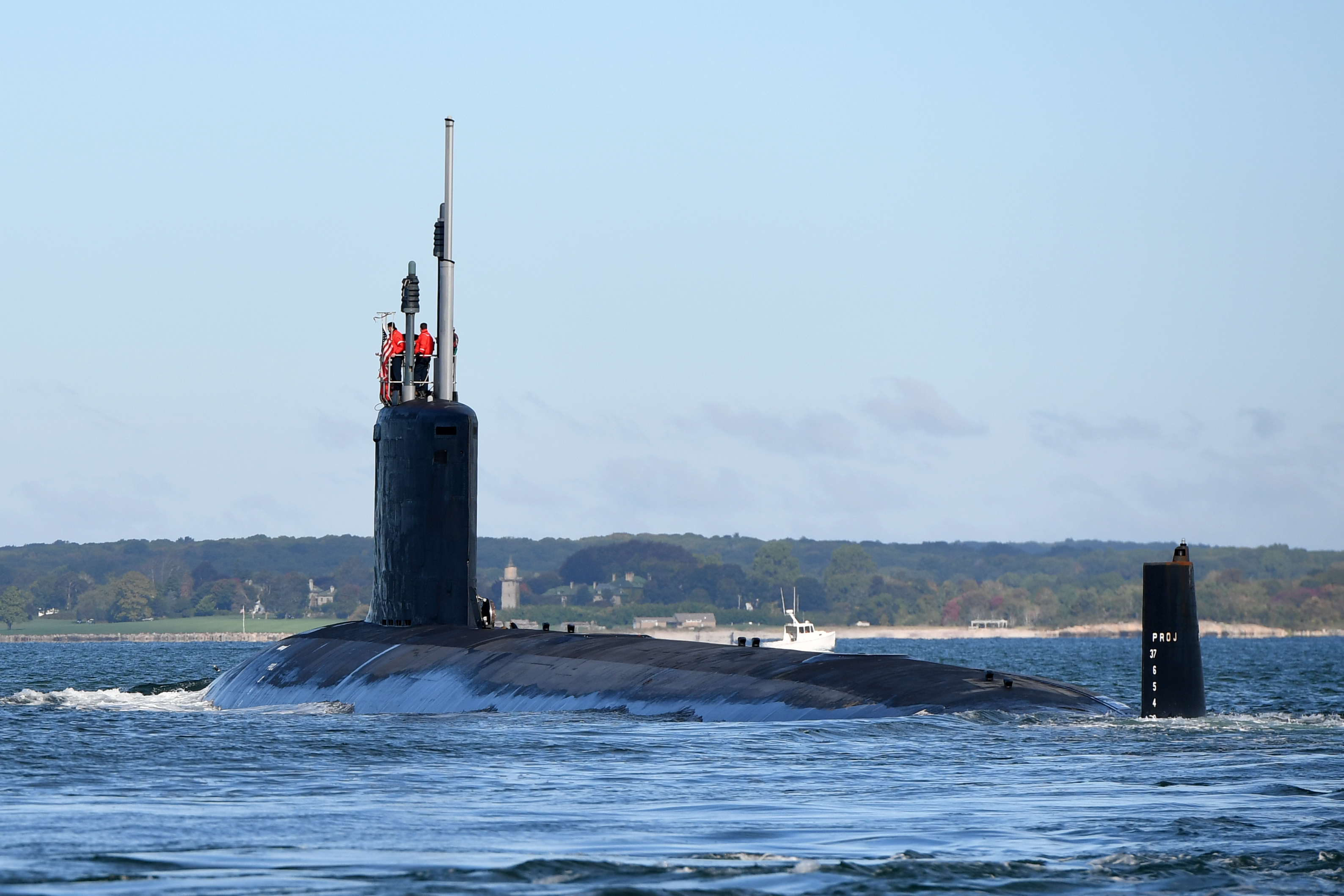
Retired Marine Corps Gen. John Kelly will step down as President Donald Trump’s chief of staff at the end of the year, after more than a year spent managing the daily operations inside the West Wing, Trump told reporters today.
Kelly, 68, spent most of his entire adult life serving the nation. He wore a Marine Corps uniform for more than 40 years, where his achievements included being among the first to enter Iraq in the Iraq War. Kelly did take a break from active duty to attend for college, earning a bachelor’s degree at the University of Massachusetts Boston. He was briefly retired before joining the Trump Administration.
Kelly’s legacy as a Marine will be tied to his time inside the Trump administration. He spent the first seven months of the Trump presidency serving as Secretary of Homeland Security before moving to West Wing. When Trump announced on Twitter he had named Kelly as his new chief of staff, Kelly – a retired four-star Marine Corps general – was seen as someone who would impose order and discipline on what many media accounts described a chaotic West Wing.
“One day, you’ll get out of the Marine Corps, you’ll put your uniform up, but you’ll never not be a Marine,” Kelly said in his final interview as an active duty Marine, posted January 14, 2016, on the Marine Corps website.
Before joining the Marine Corps in 1970, Kelly had an adventurous streak, having crisscrossed the country more than once, including traveling to Chicago from Seattle by freight train, hitching a ride in an empty boxcar, before turning 16, according to his Marine Corps website interview.
“I also went into the Merchant Marines for a year and my first time overseas was taking 10,000 tons of beer to Vietnam,” Kelly said in the Marine Corps interview.
Kelly, who was born and raised in Boston, enlisted in the Marine Corps in 1970, according to his Department of Homeland Security biography. He served as an infantryman with the 2nd Marine Division at Marine Corps Base Camp Lejeune, N.C., until his discharge as a sergeant in 1972.
“In the America I grew up in, every male was a veteran; my dad, my uncles and all the people on the block,” Kelly said the Marine Corps interview. “So, with that kind of background and the draft, you assumed you were going to go into the service when your time came.”
After college, Kelly attended Officer Candidate School in Quantico, Va. He was commissioned as a second lieutenant in 1976, serving as rifle and weapons platoon commander, company executive officer, assistant operations officer, and infantry company commander, according to Kelly’s official biography in the U.S. House of Representatives document repository.
During the 1980s and early 1990s, Kelly was steadily placed in jobs requiring increased leadership both ashore and at sea while steadily promoting in rank. By 1995, Kelly had graduated from the National War College in Washington D.C., and was promoted to colonel and selected to serve on Capitol Hill as the Commandant of the Marine Corps’ Liaison Officer to the U.S. House of Representatives, according to his official bio.
In 2002, Kelly was promoted to brigadier general as the assistant division commander of 1st Marine Division. Much of this tour was spent deployed to Iraq during the initial invasion, according to his official bio. In early 2008, then-Maj. Gen. Kelly returned to Iraq as the commanding general of 1st Marine Expeditionary Force (Forward).
“I never quite understood the definition of bravery until watching young men and women do things that were absolutely crazy to do because they were well trained and they had the capability to do their jobs,” Kelly said in the interview posted on the Marine Corps website.
In 2010, his son, 1st Lt. Robert Kelly, was killed on while leading a patrol in Afghanistan.
In October 2012, Gen. Kelly took over command SOUTHCOM. In this job, Kelly started distinguishing himself by providing an unvarnished view of what was occurring below the U.S.’ southern border.
“Because of asset shortfalls, we’re unable to get after 74 percent of suspected maritime drug trafficking. I simply sit and watch it go by,” Kelly said during a Senate Armed Services Committee hearing on the Fiscal Year 2015 defense spending request. “And because of service cuts, I don’t expect to get any immediate relief in terms of assets to work with in this region of the world.”
While at SOUTHCOM, Kelly worked closely with other agencies. Department of State, the FBI, the Drug Enforcement Agency and Department of Treasury were among the agencies SOUTHCOM consistently coordinated with, Kelly said during his 2015 SASC testimony.
Also during this time, Kelly started voicing concerns about the demand for narcotics in the U.S. and how this demand was destabilizing the SOUTHCOM region, especially the nations of Central America. The region’s growing violence and local governments’ inability to contain the violence would soon be felt inside the U.S., Kelly warned.
“If we don’t help Central America . . . we can see a mass migration the likes of which we have never seen before,” Kelly said during a May 2015 appearance at the Atlantic Council covered by USNI News.
However, Kelly’s tendency to provide his take on the situations he faced did not always go over well. Shortly before retiring from the Marine Corps and as head of SOUTHCOM, Kelly raised eyebrows when voicing his opinion that the Corps would be lowering standards to accommodate women in all combat roles, a policy change which took effect after he retired, according to media reports.
“There will be great pressure, whether it’s 12 months from now, four years from now, because the question will be asked whether we’ve let women into these other roles, why aren’t they staying in those other roles?” Kelly told reporters during a Pentagon briefing, as reported by Stars and Stripes and other outlets. “And the answer is … if we don’t change standards it will be very, very difficult to have any numbers – any real numbers – come into the infantry, or the Rangers or the SEALs.”
Still, sounding a border security hawk while leading SOUTHCOM is likely one of the reasons Trump selected him to lead the Department of Homeland Security, according to media accounts.
“In my view, the number-one threat to the nation is that we do not have control of our borders. Without control, every other kind of threat—drugs, illegal migrants, counterfeit manufactured goods and pharmaceuticals, diseases, terrorists, and the list goes on – can enter at will, and does,” Kelly wrote to the Senate before his confirmation hearing.
Later in his written testimony, Kelly recounts conversations he’d had with senior leaders from Central American countries while he commanded SOUTHCOM.
“The message I heard was always the same: ‘If you do not start sending them back to their country of origin quickly and in large numbers, they will never stop making the trek north.’ I believe they are right. I know they are right,” Kelly wrote.





